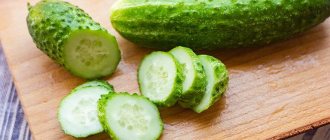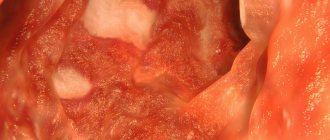General information about constipation
Constipation or constipation is a very common bowel movement disorder that makes it difficult to have bowel movements.
Individual episodes are often associated with dietary errors or functional disorders, while chronic constipation often indicates diseases of the gastrointestinal tract or other organs and systems. The key symptoms of constipation are:
- Defecation less than 3 times a week.
- Passage of dry, hard stool, which often looks like separate lumps.
- The need for additional straining to defecate.
- A feeling of “blockage” in the rectum.
- Feeling of incomplete bowel movement.
- The need for assistance with defecation (hand pressure on the abdomen and manual manipulation to remove stool from the rectum).
The danger of diarrhea when a person needs medical attention
Although in many cases diarrhea can be treated at home with over-the-counter remedies, rest, and a temporarily restricted diet, if it lasts long enough, you should consult your doctor. Contact a specialist if
:
- your diarrhea lasts more than two days without improvement;
- you become dehydrated.
Dehydration and diarrhea
Diarrhea can cause you to lose fluid quickly and put you at risk of dehydration. If you don't get treatment for diarrhea, it can have very serious consequences.
Symptoms of dehydration include
:
- fatigue;
- dry mucous membranes;
- increased heart rate;
- headache;
- frivolity;
- increased thirst;
- decreased urination;
- dry mouth.
We recommend
“Good carbohydrates: list of foods for weight loss” Read more
If you are dehydrated or have other symptoms, you may need to go to the emergency room to receive immediate treatment.
Other symptoms to look out for include black or bloody stools, severe abdominal pain, or fever (39°C) or higher.
Diarrhea
- a serious disease for young children. This can cause severe dehydration in an infant in just one day.
Get treatment right away if any of the following conditions apply to your child:
- Diarrhea for 24 hours or more.
- Temperature 39°C or higher.
- Bloody stool.
- Stool containing pus.
- The stool is black and tarry.
These are all symptoms that indicate an emergency.
Diet for constipation
Nutrition correction plays one of the key roles in the fight against constipation. Often, changes in eating habits and lifestyle are enough to eliminate constipation not associated with other diseases, as well as prevent its occurrence in the future.
List of healthy foods for constipation
Prunes help relieve constipation.
Photo: alexeyzhilkin - ru.freepik.com The diet of people with a tendency to constipation should be dominated by foods containing dietary fiber - fiber.
Fiber is a group of carbohydrates included in food that are not digested by enzymes of the digestive tract, but are broken down by intestinal microflora. According to one classification, they are divided into:
- Soluble. They dissolve in the stomach to a gel-like state, helping to slow down the absorption of food. Soluble fiber includes pectin, gums, and mucus.
- Insoluble. They do not dissolve in the gastrointestinal tract, but actively absorb water. These include cellulose and lignin.
The most useful foods for constipation are:
- Prunes. The insoluble fiber in prunes increases the amount of water in stool, preventing constipation. It also contains sugar alcohol (sorbitol), which has a laxative effect.
- Apples. They contain a large amount of pectin, which can improve intestinal motility, promote the growth of beneficial bacteria and eliminate symptoms of constipation.
- Pears. In addition to being high in fiber, pears also contain fructose and the previously mentioned sorbitol. Due to these substances that are not absorbed in the large intestine and remove water into its lumen, pears can cause a laxative effect.
- Citrus. Oranges, grapefruits and tangerines are rich in pectin and naringenin, which increase fluid secretion into the colon, causing a laxative effect. It is recommended to consume them raw.
- Spinach and other greens. Greens such as spinach, Brussels sprouts and broccoli are rich in not only fiber, but also vitamin C and K, as well as folic acid, which has a positive effect on bowel function.
- Legumes: beans, peas and lentils. Legumes contain a mixture of insoluble and soluble fiber. This means they can relieve constipation by increasing the bulk of stool, and also soften it to make bowel movements easier6.
- Kefir. Contains bacteria and yeast that improve the functioning of the digestive system. It also dilutes stool, improving the bowel movement process.
List of undesirable foods for constipation
Dairy products, red meats and alcohol are not advisable for constipation.
Photo: MedPortal Nutritional correction for constipation includes not only adding more fluid and dietary fiber, but also limiting or completely eliminating other foods that can provoke this bowel disorder [8]. These products include:
- Alcohol. Alcoholic drinks, especially in large quantities, lead to the loss of large amounts of fluid in the urine, which contributes to constipation [9].
- Milk and dairy products. It is believed that milk, due to the increased sensitivity of the human body to its proteins, can cause constipation. Children under 12 years of age are most susceptible to this effect [10].
- Red meats, which are high in fat, increase the risk of constipation [11].
- Fried food and fast food. Like red meat, these foods are high in fat and low in fiber. In addition, when preparing it, a large amount of salt is used, which worsens constipation.
- White rice, unlike brown rice, lacks bran and other main sources of fiber, which is why it can also cause constipation.
- Gluten containing products. Gluten is a protein found in grains such as wheat, barley, and rye. It has been found to be associated with constipation, and also impairs bowel function and damages the bowel in celiac disease and irritable bowel syndrome [12].
Nutrition for children with constipation
Broccoli puree helps normalize stool in young children.
Photo / Depositphotos The fight against constipation in children of preschool and primary school age is similar to that in adults: in such situations, the same tips on nutrition and lifestyle changes are relevant.
“You should try to correct the stool with a diet: give the child more water (a liter per day or more). Introduce more vegetable fiber (salads, vegetable stews), juices (plums, prunes), fermented milk products (yogurt), laxative foods (beets, pickles), etc. You should also try to involve the child himself in treatment, make it an entertaining game, and motivate him to achieve results. For example, buy a calendar with large squares and draw a smiley face in the square every day you went to the toilet. Five days in a row of independent stool - deserved a guaranteed toy, two weeks in a row - a super prize. Positive reinforcement works wonders, believe me.
And physical activity, of course. Preschoolers do not need additional stimulation, except perhaps limiting their time with gadgets and TV, but schoolchildren already need to be actively coerced - enroll in a collective sports section, for example.”
An excerpt from the book by pediatrician Sergei Butria “Child's Health. How to learn to cope with illness and your own panic"
Infants can also suffer from constipation. It is worth noting that normally in infants, the frequency of bowel movements can vary from 1-2 times a day to 1 time every 7-10 days.
If a child, in addition to infrequent bowel movements, has other symptoms of constipation, such as increased restlessness during bowel movements and feces in the form of hard lumps, the following changes in his diet are recommended [13]:
- A complementary food made from sweet potato puree, to which you can add a mixture of prunes, pears or peaches.
- Recommended vegetables include broccoli, Brussels sprouts and legumes.
- Children over 8 months of age are allowed whole grains such as oatmeal, high-fiber cereal, whole wheat pasta, and brown rice.
- Controlling the amount of liquid you drink. A baby who is exclusively breastfed or bottle-fed does not need to drink water until he is 6 months old. Babies older than this age can be given a small amount of water.
The following can also help a small child with constipation [14]:
- Warm baths. They relax the abdominal muscles and improve peristalsis.
- Exercises. By placing the child on his back, you can alternately bend his legs, as if he were riding a bicycle.
- Massage. You can improve intestinal motility by drawing circles on the child’s stomach in a clockwise direction.
- If constipation does not go away after a few days of dietary changes, children's glycerin suppositories (suppositories) can be used. However, they are intended for occasional use only. Do not use mineral oils, stimulant laxatives, or enemas to treat constipation in infants. But for older children with constipation, enemas and taking laxatives under the supervision of a pediatrician are recommended.
Help from traditional medicine
Traditional medicine offers its own recipes for getting rid of stool retention. For example, take flaxseed oil. It has a rather unpleasant aftertaste that often discourages taking it. A cocktail of flaxseed oil along with any yogurt can help you avoid this. It is recommended to take the product in the morning and evening. Instead of oil, you can add flax seed to salads for constipation.
There are many recipes with dried fruits. Prunes, raisins, dried apricots are suitable. All of them are characterized by a mild laxative effect. The available ingredients should be crushed in equal proportions, add senna and honey, mix well. The finished product is taken one tablespoon several times a day.
The benefits of castor oil have been known since ancient times.
It envelops the intestinal walls, improving the passage of products. It should be taken 30 minutes before a meal, or better yet, before bed. For preventive purposes, 5 g of the product is sufficient. Sometimes the dosage is increased to 10-50 g.
The duration of such therapy should not exceed 3 days, otherwise you can get the opposite effect. If difficulties arise due to an unpleasant taste using castor oil, the method of application can be changed to capsules. In this form, the supplement is sold in pharmacy chains.
Consequences of not following the diet
Without nutritional correction, isolated cases of constipation develop into chronic constipation. At the same time, the symptoms of this disorder worsen and the risk of complications increases, the most common of which are [15]:
- Hemorrhoids (Fig. 1).
- Anal fissures.
- Rectal bleeding.
Inflammation of the mucous membrane of the rectum and sigmoid colon - proctosigmoiditis.
Figure 1. Stages of development of hemorrhoids. Source: CC0 Public Domain
Causes of stool retention
There are many reasons for stool retention. Some of them are pathological in nature and caused by serious diseases. In this case, only correcting the diet will not get rid of the problem. The course of treatment is selected individually with a doctor. In other situations, coprostasis is caused by:
- lack of coarse fiber in the diet;
- fluid deficiency;
- sedentary lifestyle;
- fasting;
- change of environment;
- regular psycho-emotional experiences;
- pregnancy.
When starting therapy, it is first of all important to know the root cause of the disease. If there is no stool within 2-3 days, the consumption of laxative products is ineffective, you need to cleanse the intestines. To do this, you can do a 1 liter enema. To avoid unnecessary trauma to the mucous membrane, add 2-3 tablespoons of vegetable oil to water at room temperature. After the procedure, it is important to maintain a healthy diet.
Sources
- Constipation. National Digestive Diseases Information Clearinghouse. 2021.
- Elise Mandl. The 17 Best Foods to Relieve Constipation. Healthline. 2021.
- Lever E, Cole J, Scott SM, Emery PW, Whelan K. Systematic review: the effect of prunes on gastrointestinal function. Aliment Pharmacol Ther. 2014 Oct;40(7):750-8
- Bae SH. Diets for constipation. Pediatr Gastroenterol Hepatol Nutr. 2014;17(4):203-208.
- Reiland H, Slavin J. Systematic Review of Pears and Health. Nutr Today. 2015;50(6):301-305.
- Yang, Jing et al. “Effect of dietary fiber on constipation: a meta analysis.” World journal of gastroenterology vol. 18.48 (2012): 7378-83.
- Turan İ, Dedeli Ö, Bor S, İlter T. Effects of a kefir supplement on symptoms, colonic transit, and bowel satisfaction score in patients with chronic constipation: a pilot study. Turk J Gastroenterol. 2014;25(6):650-656.
- Alina Petre. 7 Foods That Can Cause Constipation. Healthline. 2020.
- Bujanda L. The effects of alcohol consumption upon the gastrointestinal tract. Am J Gastroenterol. 2000;95(12):3374-3382.
- Carroccio A, Iacono G. Review article: Chronic constipation and food hypersensitivity—an intriguing relationship. Aliment Pharmacol Ther. 2006;24(9):1295-1304.
- Abdullah MM, Gyles CL, Marinangeli CP, Carlberg JG, Jones PJ. Dietary fiber intakes and reduction in functional constipation rates among Canadian adults: a cost-of-illness analysis. Food Nutr Res. 2015;59:28646. Published 2015 Dec 11.
- Saturni, Letizia et al. “The gluten-free diet: safety and nutritional quality.” Nutrients vol. 2.1 (2010): 16-34.
- Rhona Lewis. Are There Baby Foods That Help with Constipation? Healthline. 2021.
- Jay L. Hoecker, MD What are the signs of infant constipation? And what's the best way to treat it? Mayo clinic. 2021.
- Adam Felman “What to know about constipation.” MedicalNewsToday, 2021.
Table of permitted and prohibited products
| Products | Recommended | Excluded from the diet |
| Bread, pastries | Wheat bread made from premium flour, freshly baked yesterday - limited availability. Rusks made from premium wheat bread - thin slices, unfried | Rye and fresh bread, muffins, pancakes, pancakes, all other baked goods |
| Meat, poultry | Low-fat varieties of lean veal, beef, rabbit, turkey, chicken - pureed or chopped. Fascia, tendons, and skin of the birds are removed. The minced meat is passed through a meat grinder 2-3 times. Boiled or steamed meatballs. Lean chicken or boiled chicken. | Fatty varieties of any meat, lamb, pork. Meat cooked in pieces. Duck, goose. Sausages, smoked meats, canned meats |
| Fish | Low-fat varieties (perch, carp, pike perch, etc.) boiled in pieces or chopped (cutlets, meatballs, steamed dumplings) | Fatty types, smoked, salted, canned fish, caviar |
| Eggs | 1, sometimes 2 pieces per day. Soft-boiled, in the form of a steam omelet, added to dishes | Hard-boiled, fried eggs, raw |
| Milk products | Acidophilus milk, acidophilus paste, fresh calcined or unleavened cottage cheese - pureed, in the form of a steam soufflé | Whole milk, kefir, sour cream, other dairy products |
| Cereals, legumes, pasta | Hercules, semolina, pureed buckwheat, rice, cereal flour - porridge with water or low-fat broth. Steam puddings, boiled vermicelli. | Pearl barley, barley, millet, crumbly porridge, porridge with milk, pasta casseroles, all legumes |
| Fats | Butter - 5 grams per prepared dish per meal | All other fats |
| First meal | Soups with low-fat, weak meat, chicken, and fish broth with the addition of rice, semolina, mucous decoctions of cereals, vermicelli, steamed dumplings, meatballs, egg flakes, and pureed meat | Soups with strong and fatty broths, with legumes, with vegetables, cold soups |
| Vegetables | Exclusively in the form of decoctions - added to first courses | In any other form |
| Spices, sauces | None. Everyone is excluded! | Any |
| Fruits, berries, sweets | Raw apple puree. Jelly and jelly from fresh juice or decoction of non-acidic fruits and berries (quince, pear, dogwood, bird cherry, blueberry, dried black currant). Sugar in limited quantities | Fresh berries and fruits, dried fruits, jam, honey, other sweets |
| Beverages | Tea, preferably green, black coffee, cocoa with water. Decoctions of dried rose hips, quince, bird cherry, blueberry, black currant. If well tolerated, juices of non-acidic fruits and berries, diluted with water, except apricots, grapes, plums | Cocoa with milk, coffee with milk, kvass, carbonated and cold drinks, grape juice |
Vegetarian food
Any plant food contains fiber in excess, which cleanses the intestines. Therefore, vegetarians do not even know what constipation is. Meat and meat products, as well as animal fats contained in milk, cheese, sour cream, butter, contribute to the concentration of waste and the high content of bile acids in them, which not only provokes constipation, but also makes them dangerous for the intestinal mucosa. Pectins have the exact opposite effect, which are delicate fibers that are beneficial for the mucous membrane, cleansing it like a soft sponge. There are a lot of them in baked apples, pumpkins, and zucchini. Try eating for a while with an excess of plant fiber in your diet, and you will forget about intestinal problems. Vinaigrette with vegetable oil, salads made from raw cabbage, carrots and apples, and greens are very useful.
Warm mineral water
Some mineral waters containing sulfates enhance the motor function of the intestines throughout its entire length. If there are no contraindications from the stomach or other organs (it is better to consult a doctor about this), you can drink this water on an empty stomach in the morning. Take 0.5 liters of mineral water, having first opened and released the gas from it. Heat gently to a pleasant, non-burning temperature and drink in small sips with a teaspoon of honey. Then lie down for a while, or at least spend half an hour in a calm environment. The result will not be long in coming.










